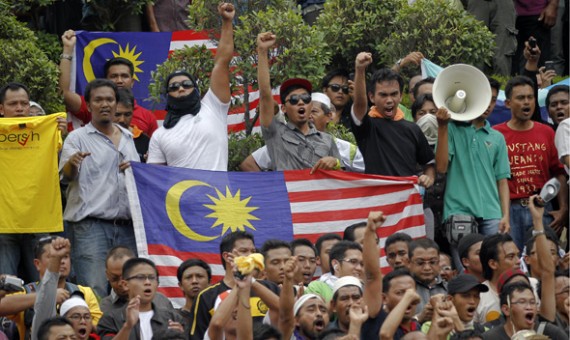Malaysia’s Bersih Movement
More on:

Last weekend, Malaysia’s Bersih (clean elections) movement drew tens of thousands of protestors to the streets of Kuala Lumpur, demanding reform of the electoral system, which is weighted in numerous ways to protect the ruling coalition. Though the protest was largely peaceful, the government met the demonstration with massive force, arresting thousands of protestors. The police used clubs, water cannons, and tear gas to crush the protests. (New Mandala has fine coverage of the Bersih protests.)
As in Thailand, where the red shirt movement started largely as a pro-Thaksin protest and developed into a larger force, the Bersih movement, which began as just a call for electoral reform, also may be developing into something larger. The government’s brutal tactics have alienated many average Malaysians, who see their country, if not exactly a democracy, as a moderate and tolerant state. Such anger could help swell the ranks of the political opposition in advance of the next election, finally ousting the ruling coalition.
Yet as the Straits Times notes [subscription required] in a fine analysis, the Bersih demonstrations also are deepening a divide in the country. As more protestors turn to the opposition, the government relies more and more on ethnic Malays, who have benefited from the ruling coalition’s decades of affirmative action policies. And the more the government relies on the Malay heartland, the more it turns off Chinese, Indian, and other voters, pushing them toward the opposition--and only reinforcing the ethnic divide in Malaysia.
More on:
 Online Store
Online Store